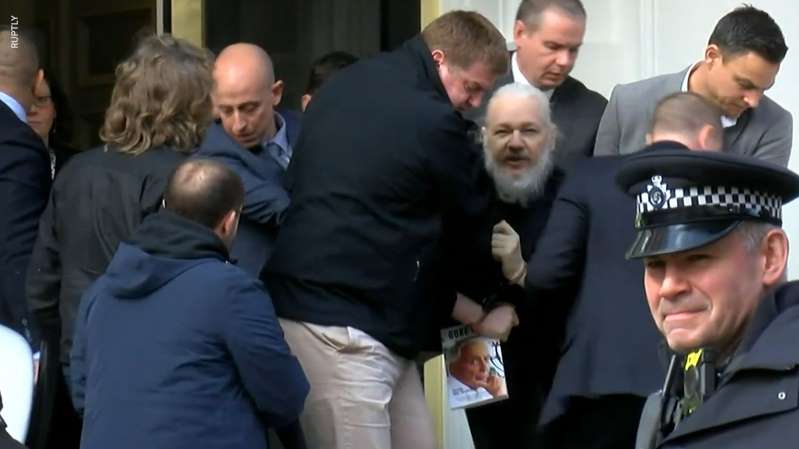By Kim Hjelmgaard, USA Today–
Prosecutors in Sweden are considering reopening an investigation into sexual assault allegations against Australian WikiLeaks founder Julian Assange, who was arrested in London’s Ecuadorian Embassy after a seven-year standoff and faces an extradition battle to the United States on a charge of conspiring to reveal government secrets.
Sweden’s Deputy Chief Prosecutor Eva-Marie Persson said in a statement that her office had received a request late Thursday to resume a rape probe into Assange from lawyers representing the alleged victim. The case was dropped in 2017 because Assange’s residency in the Ecuadorian Embassy stymied the investigation.
Assange has always denied the rape allegation.
Separate allegations of sexual assault by Assange, made by a second Swedish woman, were discontinued by authorities in 2015 after the statute of limitations expired.
The 47-year-old sought refuge in the embassy in 2012 after he was released on bail in Britain while facing extradition to Sweden in connection with both sets of allegations.
Ecuador granted him asylum in its embassy because Assange feared if he left the compound he faced a separate risk of being arrested and extradited to the U.S. for publishing classified military and diplomatic cables and images through WikiLeaks, a whistleblowing website he co-founded in 2006. In 2010, WikiLeaks released video footage allegedly showing U.S. soldiers killing civilians in Iraq. U.S. State Secretary of State Mike Pompeo – when he was the director of the CIA – referred to WikiLeaks as a “non-state hostile intelligence service often abetted by state actors like Russia.”
WikiLeaks published thousands of hacked Democratic Party emails during the 2016 election, although that is not mentioned in Thursday’s U.S. indictment.
Julian Assange:WikiLeaks founder, faces US hacking conspiracy charge
Journalist or criminal?:Julian Assange notorious for leaks of US secrets
Ecuador withdrew its asylum protection for Assange this week and asked British police to arrest him. He is now in custody and faces a British charge of breaching bail that carries a sentence of up to 12 months in jail if convicted. Assange will face a hearing over possible extradition to the U.S. related to the conspiracy charge on May 2.
Assange’s lawyer Jennifer Robinson said that Assange’s arrest was a “free speech issue” and that any extradition to the U.S. “sets a dangerous precedent for all media organizations and journalists,” but critics including U.S. federal prosecutors allege that Assange was involved in a criminal conspiracy – that he stole information – when he enlisted the help of former Army intelligence analyst Chelsea Manning in 2010 to crack a password on a secret computer network within the Defense Department.
Australia’s Prime Minister Scott Morrison said Friday that any extradition plans had “nothing to do with Australia” and that Assange would not get any “special treatment” from its consular officials. He said Assange would have to “make his way through whatever comes his way in terms of the justice system” in foreign jurisdictions.


Leave A Comment
You must be logged in to post a comment.